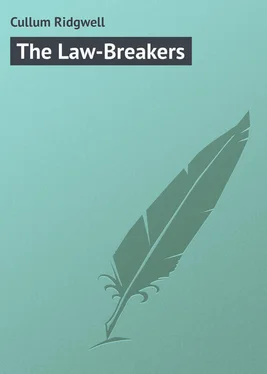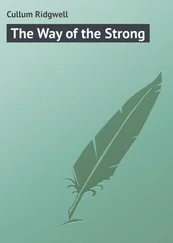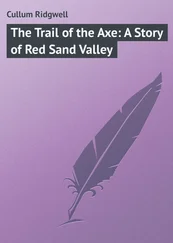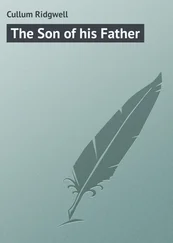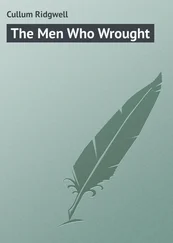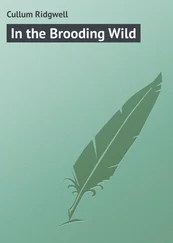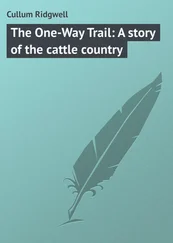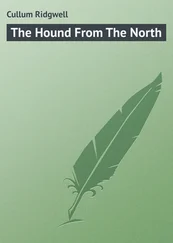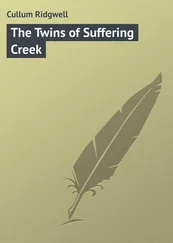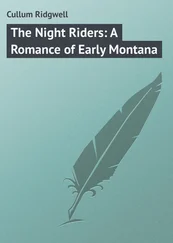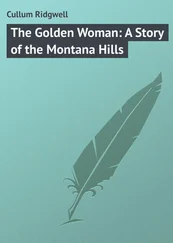Ridgwell Cullum - The Law-Breakers
Здесь есть возможность читать онлайн «Ridgwell Cullum - The Law-Breakers» — ознакомительный отрывок электронной книги совершенно бесплатно, а после прочтения отрывка купить полную версию. В некоторых случаях можно слушать аудио, скачать через торрент в формате fb2 и присутствует краткое содержание. Жанр: foreign_prose, на английском языке. Описание произведения, (предисловие) а так же отзывы посетителей доступны на портале библиотеки ЛибКат.
- Название:The Law-Breakers
- Автор:
- Жанр:
- Год:неизвестен
- ISBN:нет данных
- Рейтинг книги:5 / 5. Голосов: 1
-
Избранное:Добавить в избранное
- Отзывы:
-
Ваша оценка:
- 100
- 1
- 2
- 3
- 4
- 5
The Law-Breakers: краткое содержание, описание и аннотация
Предлагаем к чтению аннотацию, описание, краткое содержание или предисловие (зависит от того, что написал сам автор книги «The Law-Breakers»). Если вы не нашли необходимую информацию о книге — напишите в комментариях, мы постараемся отыскать её.
The Law-Breakers — читать онлайн ознакомительный отрывок
Ниже представлен текст книги, разбитый по страницам. Система сохранения места последней прочитанной страницы, позволяет с удобством читать онлайн бесплатно книгу «The Law-Breakers», без необходимости каждый раз заново искать на чём Вы остановились. Поставьте закладку, и сможете в любой момент перейти на страницу, на которой закончили чтение.
Интервал:
Закладка:
The trackside was strewn with disemboweled whitewood barrels. The wreckage was grotesque. The ground was strewn in every direction with a litter of white cube sugar, like the wind-swept drifts of a summer snowfall. Barrels were still being dragged out of the car and dropped roughly to the ground, where the sharp stroke of an axe ripped out the head, revealing within the neatly packed keg of spirit, embedded so carefully in its setting of sugar. The cargo had been well shipped by men skilled in the subtle art of contraband. It was billed, and the barrels were addressed, to a firm in Calford whose reputation for integrity was quite unimpeachable. Herein was the cunning of the smugglers. The sugar barrels were never intended to reach Calford. They were not robbing the consignees in this raid upon the freight train. They were simply possessing themselves, in unorthodox fashion, of an illicit cargo that belonged to their leader.
Fifteen kegs of spirit had been removed and bestowed in the wagon. There were still five more to complete the tally.
The leader, in easy tones, urged his men to greater speed.
“Get a hustle, boys,” he said, in a deep, steady voice, while he strove with his somewhat delicate hands to lift a keg into the wagon.
The effort was too great for him single-handed, and one of his assistants came to his aid.
“There’s no time to spare,” he went on a moment later, breathing hard from his exertion. “Maybe the loco driver’ll whistle for brakes.” He laughed with a pleasant, half humorous chuckle. “If that happens, why – why I guess the train’ll be chasing back on its tracks to pick up its lost tail.”
He spoke with a refined accent of the West. The man nearest him guffawed immoderately.
“Gee!” he exclaimed delightedly. “This game’s a cinch. Guess Fyles’ll kick thirteen holes in himself when that train gets in.”
“Thirteen?” inquired the leader smilingly.
“Sure. Guess most folks reckon that figure unlucky.”
The third man snorted as he shouldered a keg and moved toward the Wagon.
“Holes? Thirteen?” he cried, as he dropped his burden into the vehicle. Then he hawked and spat. “When that blamed train gets around Amberley he’ll hate hisself wuss’n a bank clerk with his belly awash wi’ boardin’ house wet hash.”
Again came the leader’s dark smile. But he had nothing to add.
Presently the last keg was hoisted into the wagon. The leader of the enterprise sighed.
It was a sigh of pent feeling, the sigh of a man laboring under great stress. Yet it was not wholly an expression of relief. If anything, there was regret in it, regret that work he delighted in was finished.
One of the men was removing his mask, and he watched him. Then, as the face of the man who had been concealed under the car was revealed, he signed to him.
“Get busy on the wagon,” he said.
The man promptly mounted to the driving seat, and gathered up the reins.
“Hit the south trail for the temporary cache,” the leader went on. “Guess we’ll need to ride hard if Fyles is feeling as worried as you fellows – hope.”
The man winked abundantly.
“That’s all right, all right. He’ll need to hop some when we get busy. Ho, boys!” And he chirrupped his horses out of the shallow cutting, and the wagon crushed its way into the smaller bush.
The leader stood for a moment looking after it. Then he turned to the other man, still awaiting orders.
“Get the other boys’ horses up,” he said sharply. “Then stand by on horseback, and hold the train crew while they tumble into the saddle. Then make for the cache.”
The man hurried to obey. There were no questions asked when this man gave his orders. Long experience had taught these men that there was no necessity to question. Hardy ruffians as they were they knew well enough that if they had the bodies for this work, he had a head that was far cleverer even than that of Inspector Fyles himself.
Meanwhile the leader had moved out into the center of the track, and his eyes were turned westward, toward the bend round the great hill. They were pensive eyes, almost regretful, and somehow his whole face had changed from its look of daring to match them. The exhilaration had gone out of it; the command, even the determination had merged into something like weakness. His look was soft – even tender.
He stood there while the final details of his enterprise were completed. He heard the horses come up; he heard the two men clamber from the caboose and get into the saddle. Then, at last, he turned, and moved off the track.
Once more the old look of reckless daring was shining in his luminous eyes. He dashed off into the bush to mount his horse, leaving his softer mood somewhere behind him – in the West.
There was a clatter and rattle of speeding hoofs, which rapidly died out. Then again the hills returned to their brooding silence.
The withdrawal of the outlaws was the cue for absurd activity on the part of the train crew. A whirlwind of heated blasphemy set in, which might well have scorched the wooden sides of the car. They cursed everybody and everything, but most of all they cursed the bucolic agent at White Point.
Then came a cautious reconnoitering beyond the door. This was promptly followed by a pell-mell dash for the open. In a moment they were crowding the trackside, staring with stupid eyes and mouths agape at the miniature snowfall of sugar, and the wreckage of whitewood barrels.
The conductor was the first to gather his scattered faculties.
“The lousy bums!” he cried fiercely. Then he added, with less ferocity and more regret, “The – lousy – bums!”
A moment later he turned upon his comrades in the aggrieved fashion of one who would like to accuse.
“’Taint no use in gawkin’ around here,” he cried sharply. “We’re up agin it. That’s how it is.” Then his face went scarlet, as a memory occurred to him. “Say, White Point’s around the corner. And that’s where we’ll find that hop-headed agent – if he ain’t done up. Anyways, if he ain’t – why, I guess we’ll just set him playin’ a miser-arey over his miser’ble wires, that’ll set ’em diggin’ out a funeral hearse and mournin’ coaches in that dogasted prairie sepulcher – Amberley.”
Mr. Moss was disentangling the crick in his back for the last time that day. His stomach had forced on him the conviction that his evening meal was a necessity not lightly to be denied.
His back eased, he shouldered his hoe and moved off toward his shanty with the dispirited air of the man who must prepare his own meal. As he passed the lean-to, where his kindling and fuel were kept, he flung the implements inside it, as though glad to be rid of the burden of his labors. Then he passed on round to the front of the building with the lagging step of indifference. There was little enough in his life to encourage hopeful anticipation.
At the door he paused. Such was his habit that his eyes wandered to the track which had somehow become the highway of his life, and he glanced up and down it. The far-reaching plains to the west offered him too wide a focus. There was nothing to hold him in its breadth of outlook. But as his gaze came in contact with the frowning crags to the east, a sudden light of interest, even apprehension, leaped into his eyes. In a moment he became a creature transformed. His bucolic calm had gone. The metamorphosis was magical.
In one bound he leaped within the hut. Then, in a moment, he was back at the door again, his tensely poised figure filling up the opening. His powerful hands were gripping his Winchester, and he stood ready. The farmer in him had disappeared. His eyes were alight with the impulse of battle.
Along the track, from out of the hills, ran four unkempt human figures. They were rushing for the flag station, gesticulating as they came. In the loneliness of the spot there was only one interpretation of their attitude for the waiting man.
Читать дальшеИнтервал:
Закладка:
Похожие книги на «The Law-Breakers»
Представляем Вашему вниманию похожие книги на «The Law-Breakers» списком для выбора. Мы отобрали схожую по названию и смыслу литературу в надежде предоставить читателям больше вариантов отыскать новые, интересные, ещё непрочитанные произведения.
Обсуждение, отзывы о книге «The Law-Breakers» и просто собственные мнения читателей. Оставьте ваши комментарии, напишите, что Вы думаете о произведении, его смысле или главных героях. Укажите что конкретно понравилось, а что нет, и почему Вы так считаете.
